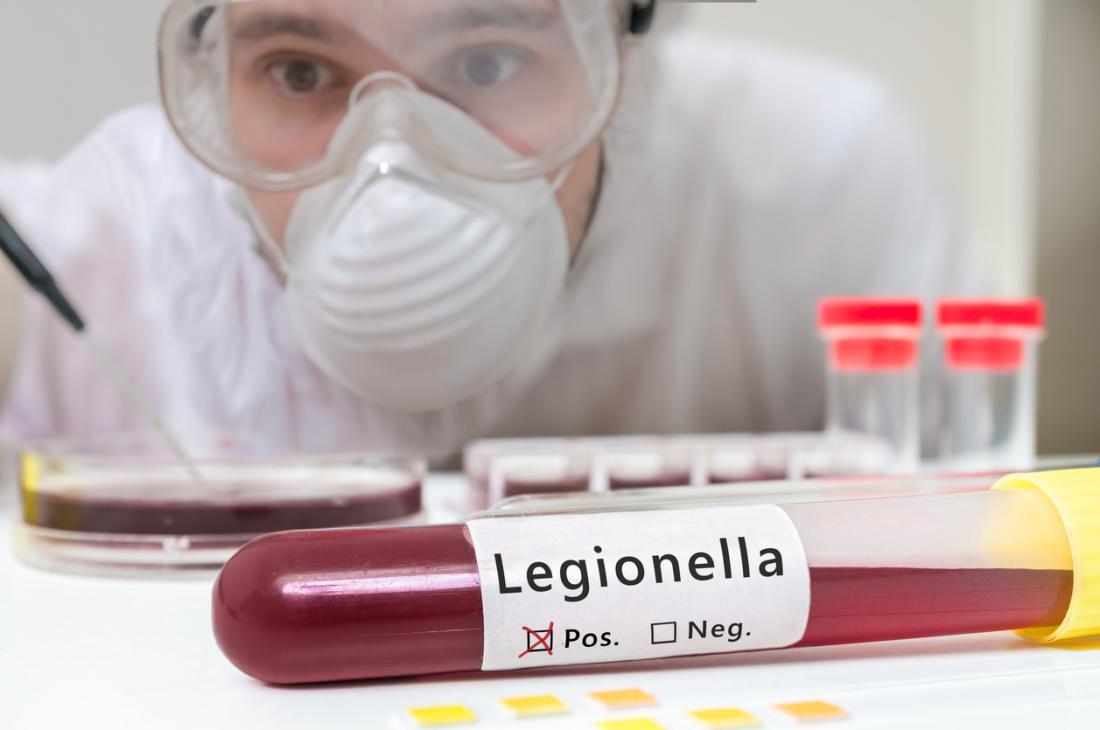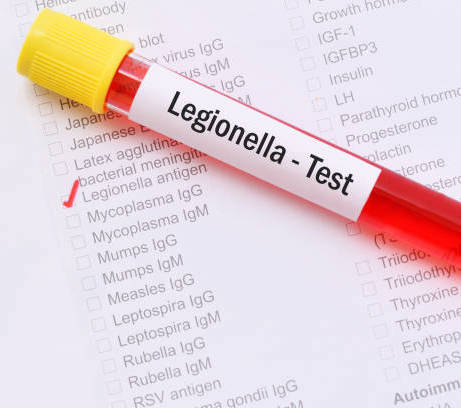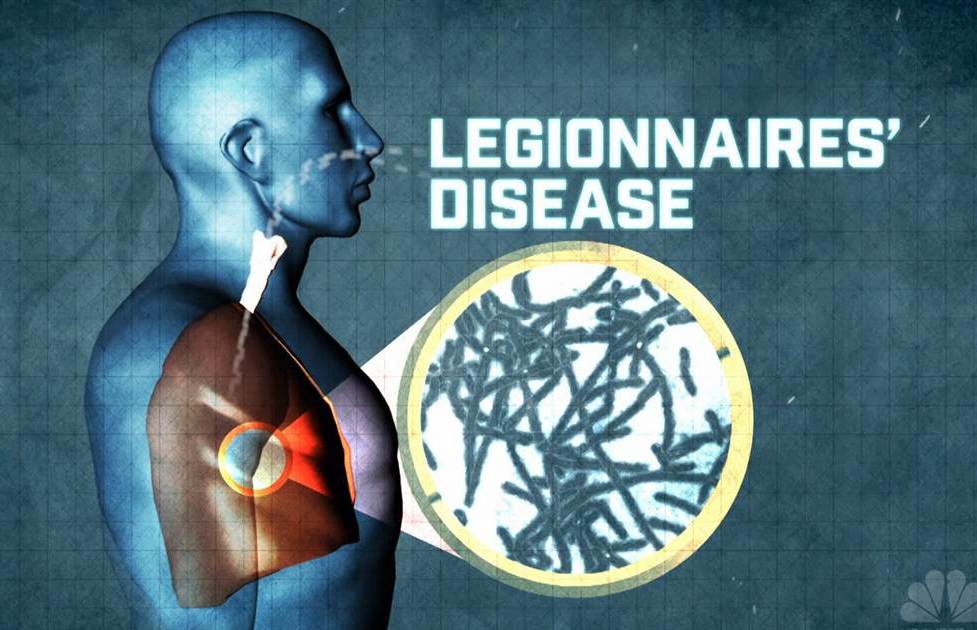WHAT IS LEGIONNAIRES’ DISEASE?
Legionnaires’ disease is a serious type of pneumonia lung inflammation generally caused by infection. This is caused by a bacterium named legionella.
Most people catch Legionnaires’ disease by breathing in the bacteria from water or soil. Senior citizens, smokers, and people with weakened immune systems are especially vulnerable to Legionnaires’ disease.
The legionella bacterium also causes Pontiac fever, a milder disease resembling the flu. Pontiac fever generally clears on its own, but untreated Legionnaires’ disease could be fatal. However immediate treatment with antibiotics generally cures Legionnaires’ disease, some people continue to have problems after treatment.

LEGIONNAIRES’ DISEASE SYMPTOMS
Legionnaires’ disease generally develops two to ten days after exposure to legionella bacteria. It frequently starts with the following signs and symptoms:
- Headache
- Muscle aches
- Fever which can be 104 F (40 C) or more
- Legionella bacteria test
By the second or third day, you will develop other signs and symptoms that could include:
- Cough, which can cause mucus to come up, and sometimes blood
- Shortness of breath
- Chest pain
- Gastrointestinal symptoms, like nausea, vomiting, and diarrhea
- Confusion or other mental changes
However Legionnaires’ disease mainly affects the lungs, it occasionally could cause infections in wounds and other parts of the body, including the heart.
A mild type of Legionnaires’ disease called Pontiac fever could produce fever, chills, headaches, and muscle aches. Pontiac fever does not infect your lungs, and symptoms generally clear within 2 to 5 days.
WHEN SHOULD YOU SEE A DOCTOR?
See your doctor or primary care physician if you think you have been exposed to legionella bacteria. Diagnosing and treating Legionnaires’ disease as soon as possible could help shorten the recovery period and prevent severe complications. For people at high risk, for example, smokers or older adults, immediate treatment is critical.
LEGIONNAIRES’ DISEASE CAUSES
The bacterium named Legionella pneumophila is responsible for most cases of Legionnaires’ disease. Outdoors, legionella bacteria persist in soil and water, but uncommonly cause infections. Although, legionella bacteria could multiply in water systems made by humans, for example, air conditioners.
However, it is possible to get Legionnaires’ disease from home plumbing, most breakouts have happened in large buildings, perhaps because complex systems permit the bacteria to grow and spread more easily. Also, home and car air conditioning units do not use water for cooling.
How the infection spreads
Most people become infected when they breathe in microscopic water droplets comprising legionella bacteria. This could be the result of spraying a shower, faucet or whirlpool, or water from the ventilation system of a large building. Outbreaks have been connected to:
- Hot tubs and whirlpools
- Cooling towers in air conditioning systems
- Hot water tanks and heaters
- Decorative fountains
- Swimming pools
- Birthing pools
- Drinking water
In addition to inhaling water droplets, the infection could be transmitted in other ways, including:
- Aspiration – This happens when liquids accidentally enter your lungs, generally because you cough or chokes while drinking. If you aspirate water containing legionella bacteria, you could develop Legionnaires’ disease.
- Soil – A few people have contracted Legionnaires’ disease after working in a garden or using infected potting soil.
Legionella test

LEGIONNAIRES’ DISEASE RISK FACTORS
Not everyone exposed to legionella bacteria becomes ill. You are more likely to develop the infection if you:
- Smoke – Smoking affects the lungs, making you more vulnerable to all types of lung infections.
- Have a weakened immune system – This could be a result of HIV/AIDS or specific medications, particularly corticosteroids and drugs taken to stop organ rejection after a transplant.
- Have a chronic lung disease or other severe condition – This includes emphysema, diabetes, kidney disease, or cancer.
Are 50 years of age or older.
Legionnaires’ disease could be a problem in hospitals and nursing homes, where germs could spread easily and people are susceptible to infection.
LEGIONNAIRES’ DISEASE COMPLICATIONS
Legionnaires’ disease could lead to a number of life-threatening complications, including:
- Respiratory failure – This happens when the lungs cannot provide the body with enough oxygen or cannot remove enough carbon dioxide from the blood.
- Septic shock – This happens when a serious, unexpected drop in blood pressure lowers blood flow to important organs, particularly to the kidneys and brain. The heart tries to compensate by increasing the volume of blood pumped, but the extra workload ultimately weakens the heart and lowers blood flow even further.
- Acute kidney failure – This is the unexpected loss of your kidneys’ ability to filter waste from your blood. When your kidneys fail, dangerous levels of fluid and waste build up in your body.
When not treated immediately, Legionnaires’ disease could be fatal.
LEGIONNAIRES’ DISEASE PREVENTION
Outbreaks of Legionnaires’ disease are preventable, but prevention needs water management systems in buildings that make sure that water is monitored and cleaned regularly.
To reduce your personal risk, avoid smoking.

LEGIONNAIRES’ DISEASE DIAGNOSIS
Legionnaires’ disease is identical to other forms of pneumonia. To help identify the presence of legionella bacteria quickly, your doctor or primary care physician may use a test that checks your urine for legionella antigens foreign substances that trigger an immune system response. Other tests may include:
- Blood and urine tests
- Chest X-ray, which does not confirm Legionnaires’ disease but could show the extent of infection in your lungs
- Tests on a specimen of your sputum or lung tissue
LEGIONNAIRES’ DISEASE TREATMENT
Legionnaires’ disease is treated with the help of antibiotics. The sooner therapy is commenced, the less likely the chance of developing severe complications. In many cases, treatment needs hospitalization. Pontiac fever goes away on its own without treatment and causes no lingering issues.
If you or anyone you know is suffering from Legionnaires disease, our expert providers at Specialty Care Clinics will take care of your health and help you recover.
Call 469-545-9983 to book an telehealth appointment for an at home check-up.
